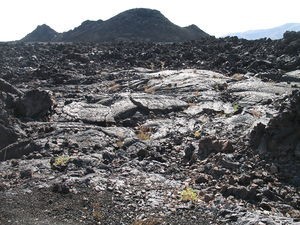Labrador Press Release
Craters of the Moon is a National Monument that is hoping to one day become a National Park.
WASHINGTON, D.C. – On Tuesday Rep. Raúl Labrador, R-Idaho, introduced H.R. 2284, a bill to reform the Antiquities Act to restrain unilateral presidential power.
Labrador’s National Monument Designation Transparency and Accountability Act requires approval by Congress and any state with a proposed national monument before the President can formally designate a monument. The legislation also requires public input.
The bill follows last week’s executive order by President Donald Trump directing Interior Secretary Ryan Zinke to review monuments designated since 1996 and recommend any necessary legislative or administrative changes.
“I commend President Trump for highlighting excessive presidential power that ignores the states and the people closest to the land,” Labrador said. “But we must change the law to achieve lasting reform. My bill requires public input and approval by lawmakers in the states and in Congress before putting more of our lands off limits.”
In 1906, Congress passed the Antiquities Act out of concern about theft from archeological sites. Since then, 16 presidents have designated 157 monuments that include 840 million acres of land and marine habitat, often without support from local communities, user groups and Congress. President Obama alone designated nearly 554 million acres — ten times the size of Idaho.
In the early years of the Antiquities Act, the average size of a national monument was 422 acres. Since 1996, 24 monuments have exceeded 100,000 acres.
“While President Obama set a new standard for executive overreach, presidents in both parties have overstepped,” Labrador said. “My bill protects multiple use of our lands by requiring support from local communities, user groups and state elected officials.”
Labrador’s bill is the House companion to U.S. Senator Mike Crapo’s S. 132, introduced in the Senate. Identical legislation was introduced by Crapo and Labrador in 2015.
“With the President’s leadership, I am hopeful this legislation can help accomplish real reform,” Labrador said. “I look forward to working across the aisle on changes that return power to the people.”
The bill would require congressional approval of any new national monuments after states act. Absent approval, presidents would be barred from designating new monuments. Any future monuments also would have to comply with federal environmental laws.





